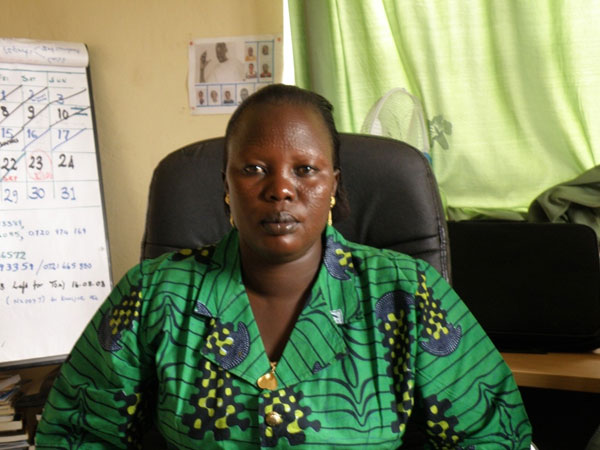‘My name is Mary Chabak. I am from Unity State in Western Upper Nile, from Koch County, a place called Thar Jath. It is the sixth year since the displacement. My place was a big community of 28 families. Everyone was displaced. We still live in the new place, Guk. I married in 1987. I have a big family, my husband has a first wife with seven children and I have five children. We live together with the grandmother of my husband.’

Voices of the victims – Interview
“Before we left, people came to talk to us and told us we had to leave Thar Jath because it is a dangerous place. Our people were quarrelling, saying that we don’t want to go. But they told us if we don’t go you can die and all your cows can die. We can give you another place, they said. Then the commissioner [local Government authority] came and talked to us and we believed him and we left the place. We went to the place the commissioner showed us. Walking, it took us three hours.
This place, it is not good for us. It is called Guk. It is full of water. It is very muddy when the rain comes. It is not good for people to stay here. There are a lot of mosquitoes. More than two hundred people were moved to this place.
My family lost two luaks and three tukhuls. We lost fifty cows during the move, some of them died and some of them were lost on the journey. Even now my chest sometimes still pains me from carrying all those things, some things on my head, on my back and in my hands.
We lost many things, we had planted trees and the seeds for crops; all of them we lost.
We had planted mango, neem, guava and bananas even lemon trees were being grown for selling. If the market is good you can get up to 300 Sudanese pounds for a day. But now the family is not growing crops. In the new place there is no way to plant because of the water. There is no market nearby and there is no road.
In Thar Jath we caught fish. You can get 20 Sudanese pounds for one or 10 Sudanese pounds for a smaller one. I don’t know how much we got altogether. But everyday we sold fish. We also sold milk. In a year we could get 2,000 Sudanese pounds.
There is no money in the new place. We are cutting grass and taking it to the market and we are selling it, but it is not much. Sometimes people are not buying and we come back with it. It is only 5 pounds for a bundle. When we were in Thar Jath it was good for us because everything we need is there. But the new place cannot feed us, there is too little.
Before we moved we were very happy because in our place, we had everything. We used to be able to go with our money and buy medicine for our children if they were sick. Now we don’t have a hospital near to us.
Now we cannot go back, a company is there, they have taken our place. And in fact we don’t want to go back to Thar Jath because it is full of the buildings of the company and the water is said to be bad. In the last two years we have lost 206 cows.
We have to take them far for grazing because there is too much water and mosquitoes in Guk.
I passed by this month. I went there by foot together with my co-wife, through a lot of water. I saw only the company buildings. There are soldiers, security men there from both the south and north.
I don’t know of anybody who has asked for compensation. I know I have the right for compensation but there is no way. We know only it is to be done with the commissioner and state governor. Maybe one day there will be something to come to us.”
Interview by Skye Wheeler, Sudan-based journalist
Juba, August 23, 2008



